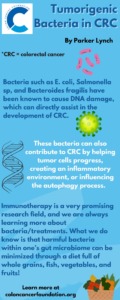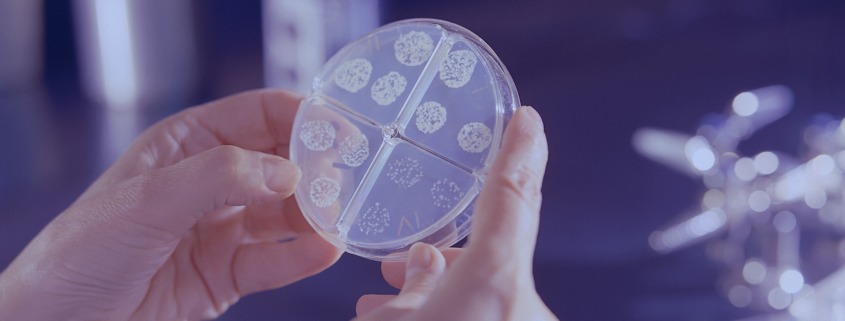By Parker Lynch
According to a study published in Cancer Biology & Medicine, the role of intestinal bacteria in the development of colorectal cancer (CRC) has been receiving a lot of attention in recent years. Various bacteria such as Fusobacterium nucleatum, Escherichia coli, Bacteroides fragilis, Enterococcus faecalis, and Salmonella sp., have been known to cause DNA damage. Additionally, these bacteria also help tumor cells evade the body’s immune response, creating a pro-inflammatory environment. The DNA damage and other hindrances upon one’s immune system and bodily function have been associated with the development and progression of CRC.
These bacteria can be useful biomarkers for CRC. Additionally, progress is being made in developing effective antibacterial therapies, which could prove useful in the treatment of CRC.

Parker Lynch is a Colorectal Cancer Prevention Intern with the Colon Cancer Foundation.

